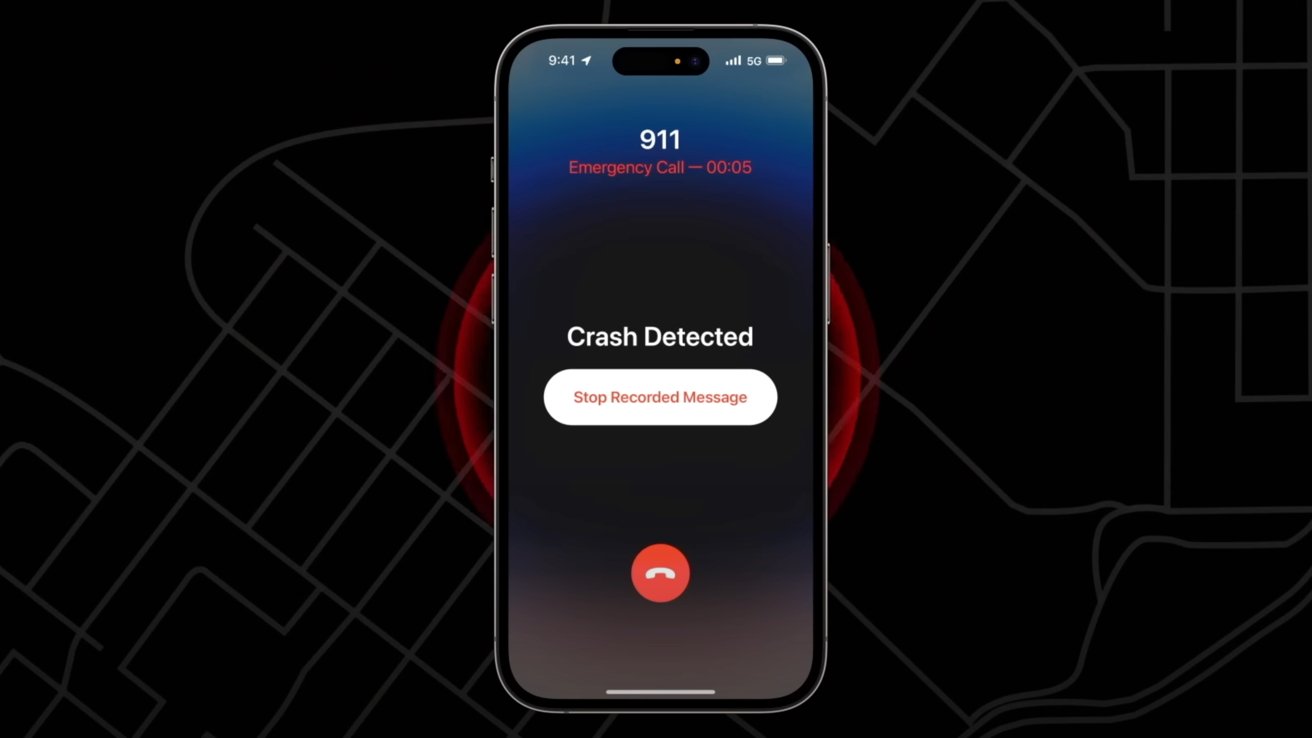Crash Detection can save a life, but it also strains emergency services

AppleInsider may earn an affiliate commission on purchases made through links on our site.
As Apple works to reduce the number of false alarms created by its iPhone 14 Crash Detection, it's also saying that users should not cancel an unintended emergency call.
The iPhone 14 introduced Crash Detection, which among many other aspects, uses the accelerometer to identify when a user has suddenly stopped. If that is sudden and there are enough other triggers, the iPhone will start the process of making an emergency call.
Where there have been problems with this is both in how often Crash Detection is accidentally triggered — and users not noticing that an emergency call has been placed. The iPhone will show an alert and even begin making what Apple describes in its support documentation as "loud whoops to get your attention."
Nonetheless, sufficient people miss that their iPhone is making an emergency call that it is now an issue for emergency services.
For instance, a skier who has their phone deep in a pocket may not hear the sound. Or that sound is drowned out because the user is on a rollercoaster.
Now as first spotted by MacRumors, Apple has updated its support documentation to address one factor of this problem.
"If the call has been made, but you don't need emergency services, don't hang up," it says. "Wait until a responder answers, then explain that you don't need help."
The inference, of course, is that when someone hangs up, emergency services can't be sure it's deliberate, and not that something else has happened to the user or their phone.
While ever more finely tuned Crash Detection may ultimately be the answer to stopping false positives, this at least may cut down how much time and resources they take up for the emergency services.